At King Edward VI Handsworth Wood Girl’s Academy our core aim is excellence for all which is underpinned by our vision, mission and values. We are a High Performance Learning International Research school which means that we believe in the HPL philosophy and framework. This means that we believe that all the students can be high performers, and we teach with these expectations in mind. We use HPL to develop our core values of scholarship, character and community which focuses on the 5 Advanced Cognitive Performance skills and the 3 Values, Attitudes and Attributes of the HPL framework.
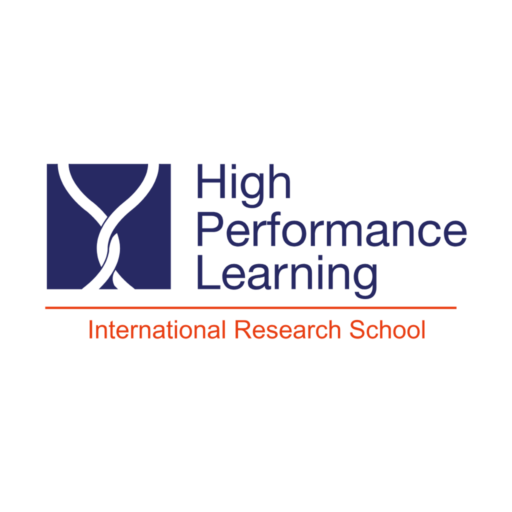
High Performance Learning is a research-based, pedagogy led philosophy that responds to our growing understanding of human capability. It normalises high performance for all students and uses a unique teaching and learning framework to systematically develop the cognitive skills, values, attitudes and attributes needed for lifetime success.
HPL is routed in a strong belief that there is ‘room at the top, if we systematically nurture more children to get there.’ (Deborah Eyre)
- It assumes that high performance for most is a possible outcome.
- It systematically builds the skills that enable high performance and creates schools with many high performing students – regardless of their performance on entry.
- It expects schools to become increasingly proficient in obtaining this outcome for their students and this is their key accountability measure.
- It depends on a professionalised teaching force using their professional capital to achieve this.
- It requires schools to take the general principles, interpret them for their own context and create a unique version.
As a HPL school since September 2020 we have worked with our staff and students on how we want to embed the HPL philosophy and framework within our school and through our curriculum.
We started our journey with staff training and discussions on what ambition and high performance looks like. We began by sharing our vision, mission and values with the whole school community which echo the philosophy of HPL. Everything that we do within our school has our core purpose at the centre:
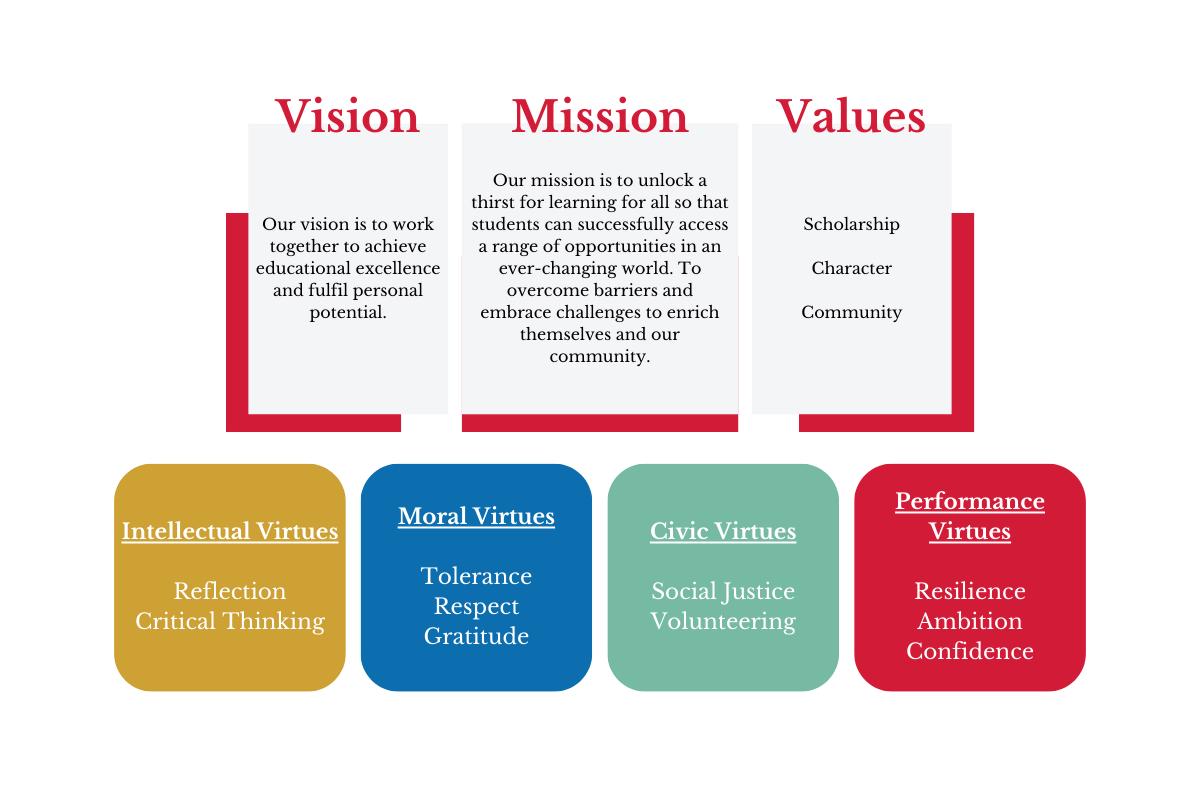
The HPL framework ties together the Advanced Cognitive Performance Skills (ACPs) and the Values, Attitudes and Attributes (VAAs) across our curriculum and beyond the classroom. We explicitly teach and foster the framework within all our curriculum areas and within our pastoral framework. Our first step has been to make the framework unique to our school by creating icons to summarise the meaning of each of the characteristics and attributes.
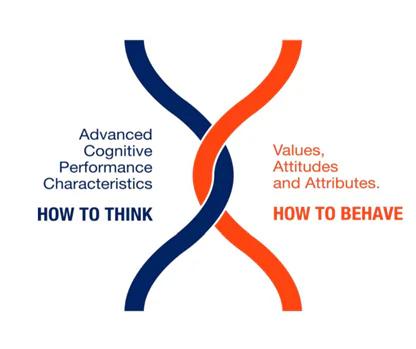
A guide to the points we award.
Advanced Cognitive Performance characteristics
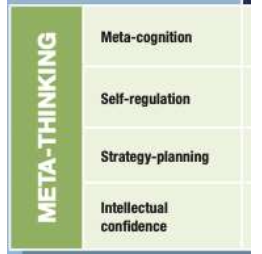 |
What is Meta-thinking?
This is ‘thinking about thinking’. To be successful academically students acquire a range of ways of thinking that enable them comprehend information, create thoughts and unscramble complex ideas. |
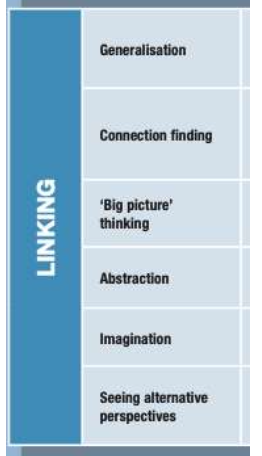 |
What is linking?
To be successful academically students need to acquire a repertoire of ways |
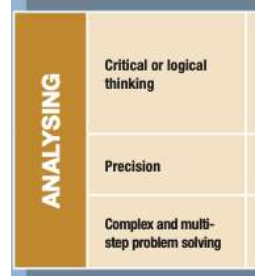 |
What is analysing?
A key skill in advanced learning is the ability to analyse information in order to position it in the learning schema. Students need to master their understanding of it before they can manipulate it. |
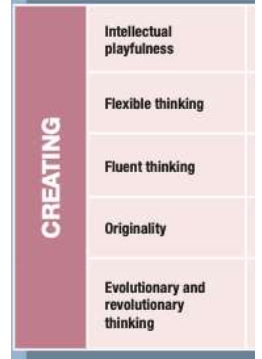 |
What is creating?
A key skill in advanced learning is the ability to be creative in thinking. There is no single definition of what it means to be creative, it is more often about seeing a slightly different possibility from the usual one. |
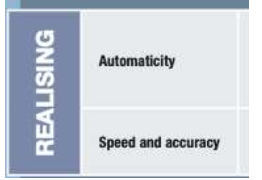 |
What is realising?
The ability to acquire a repertoire of ways of thinking that enable students |
Values, Attitudes, and Attributes
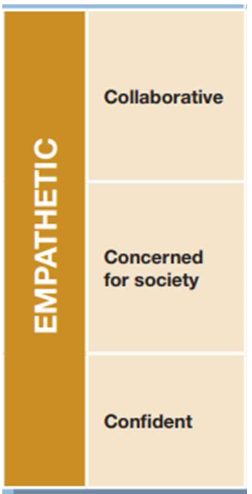 |
What is empathetic?
The HPL student profile focuses on creating enterprising learners who exhibit leadership attributes in addition to being able to perform highly in school assessments and exams. The ability to know the contribution that can be made to society for the benefit of those less fortunate; demonstrate citizenship and a sense of community ethos and recognise differences as well as similarities between people and peoples; being aware of our own and others’ cultural heritage and sensitive to the ethical and moral issues raised by their studies. |
 |
What is agile?
The ability to be agile or nimble in learning is crucial to using and applying knowledge effectively. |
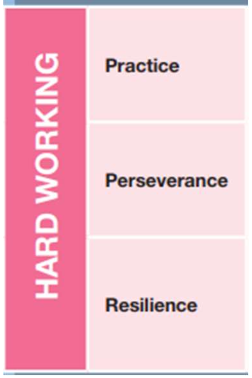 |
What is hardworking?
The role of hard work in creating success has always been understood but we are now clear that it is a truly essential component in optimising life chances in education. No matter how easily a student learns new topics they will not be successful in the long run if they cannot, or do not, work hard. |
Download the full guide here.
A guide to the skills and behaviours
Please see our Parent Guide to supporting your child in using the skills and behaviours used within HPL here


Collaborative
The ability to seek out opportunities to receive responses to your work; to present your own views and ideas clearly and concisely; to listen to the views of others; we willing and able to work in teams; to assume a variety of roles and be able to evaluate your own ideas and contributions.

Concerned for Society
The ability to know the contribution you can make to society to the benefit of those less fortunate; to demonstrate citizenship and a sense of community ethos and recognise differences as well as similarities between people and peoples; be aware of your own and others cultural heritage and be sensitive to the ethical and moral issues raised by your studies.

Confident
The ability to develop a belief in your knowledge, understanding and action; recognise when you need to change your beliefs based upon additional information or the arguments of others; deal with new challenges and situations, including when this places you under stress.
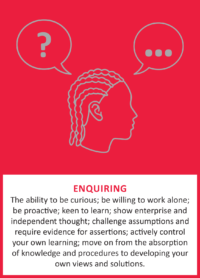
Enquiring
The ability to be curious; be willing to work alone; be proactive; keen to learn; show enterprise and independent thought; challenge assumptions and require evidence for assertions; actively control your own learning; move on from the absorption of knowledge and procedures to developing your own views and solutions.
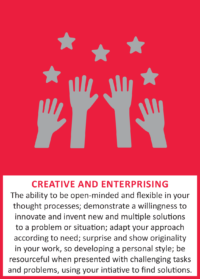
Creative & Enterprising
The ability to be open-minded and flexible in your thought processes; demonstrate a willingness to innovate and invent new and multiple solutions to a problem or situation; adapt your approach according to need; surprise and show originality in your work, so developing a personal style; be resourceful when presented with challenging tasks and problems, using your initiative to find solutions.
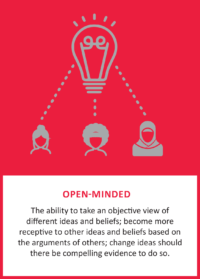
Open-minded
The ability to take an objective view of different ideas and beliefs; become more receptive to other ideas and beliefs based on the arguments of others; change ideas should there be compelling evidence to do so.
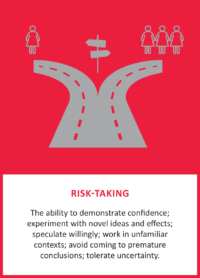
Risk-taking
The ability to demonstrate confidence; experiment with novel ideas and effects; speculate willingly; work in unfamiliar contexts; avoid coming to premature conclusions; tolerate uncertainty.
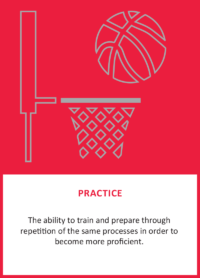
Practice
The ability to train and prepare through repetition of the same processes in order to become more proficient.
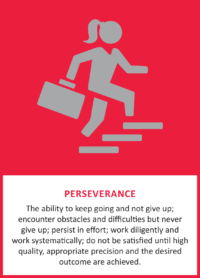
Perseverance
The ability to keep going and not give up; encounter obstacles and difficulties but never give up; persist in effort; work diligently and work systematically; do not be satisfied until high quality, appropriate precision and the desired outcome are achieved.
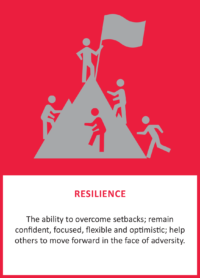
Resilience
The ability to overcome setbacks; remain confident, focussed, flexible and optimistic; help others to move forward in the face of adversity.
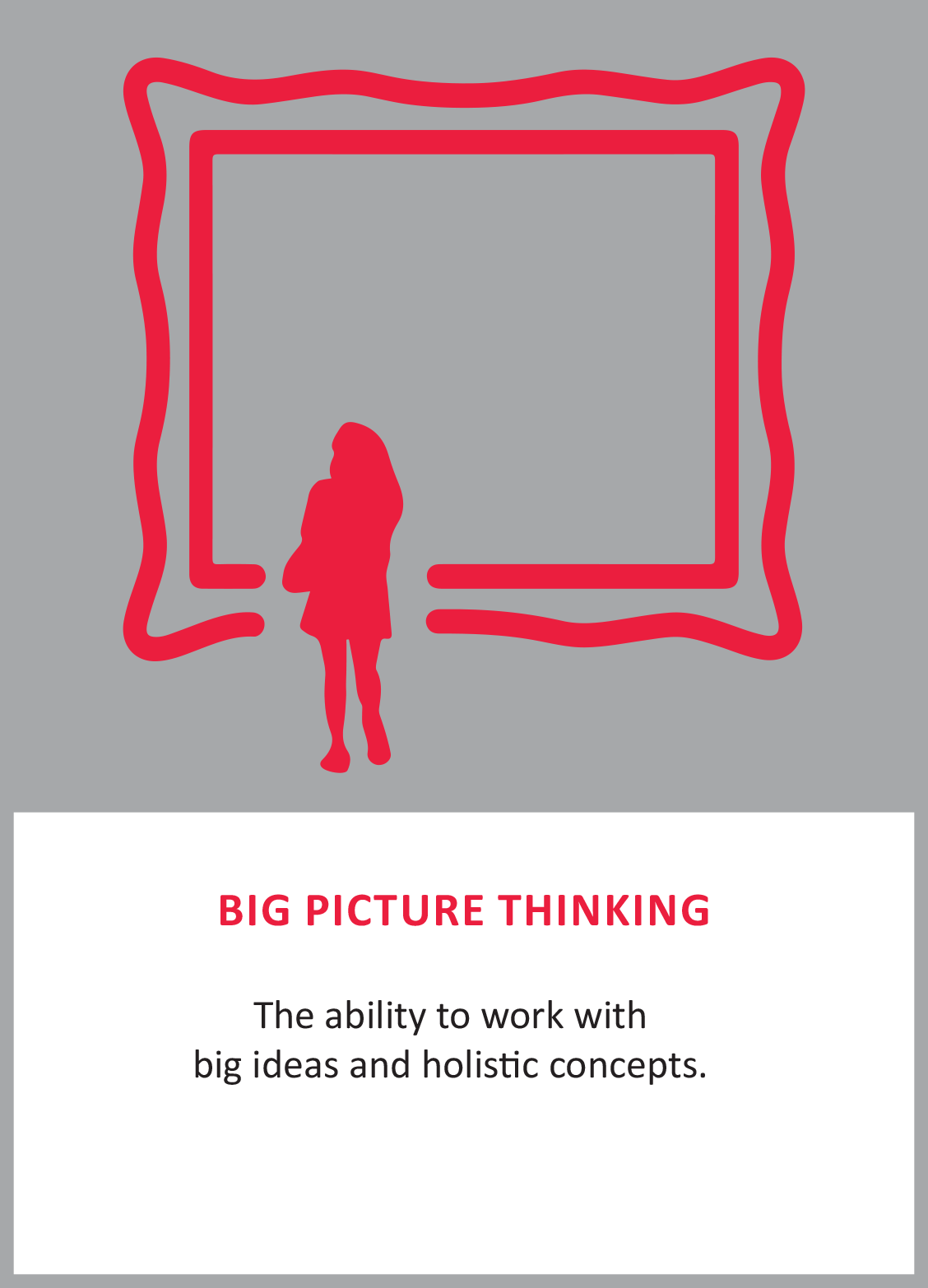
Big Picture Thinking
The ability to work with big ideas and holistic concepts.
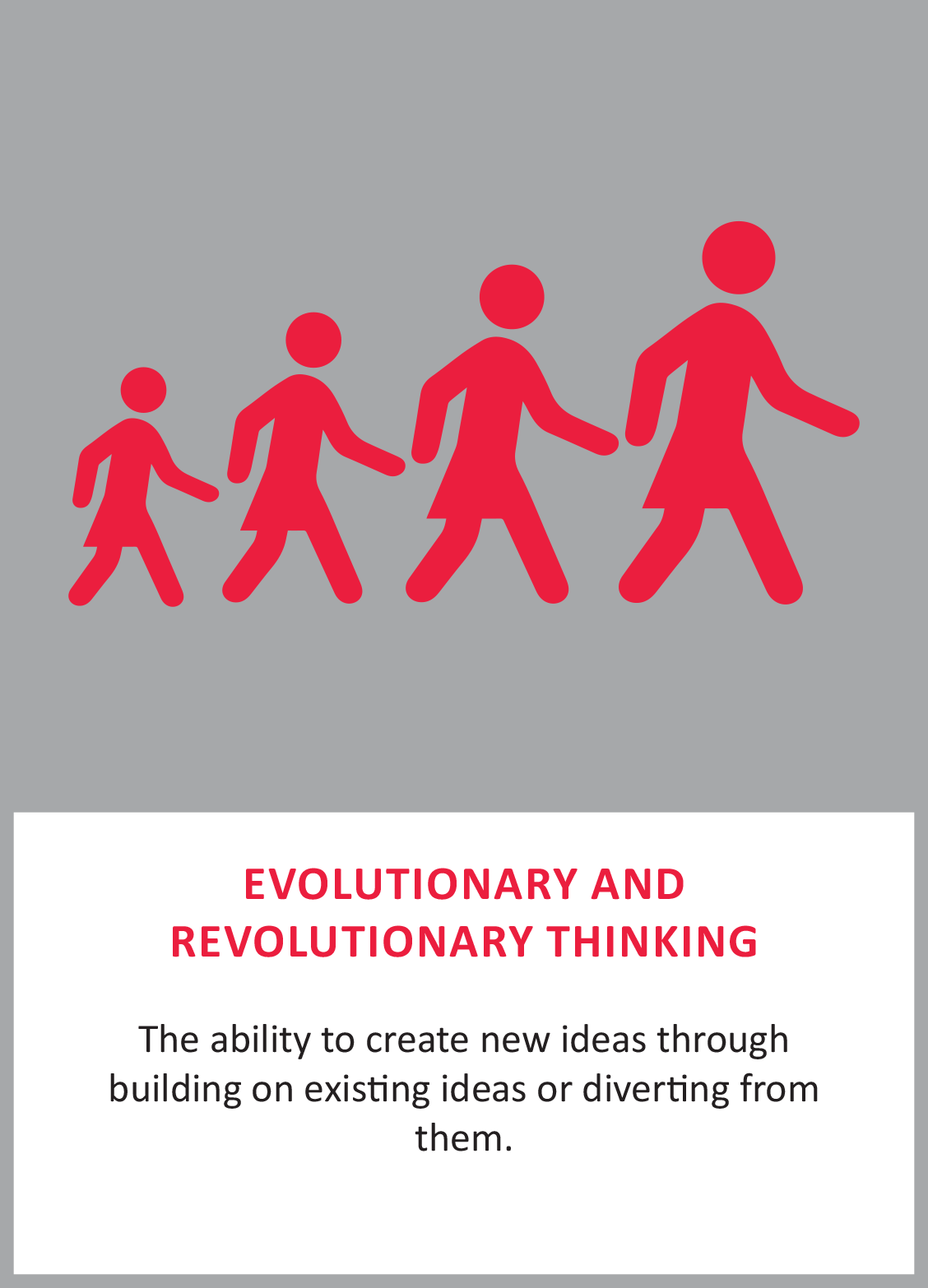
Evolutionary & Revolutionary Thinking
The ability to create new ideas through building on existing ideas or diverting from them.
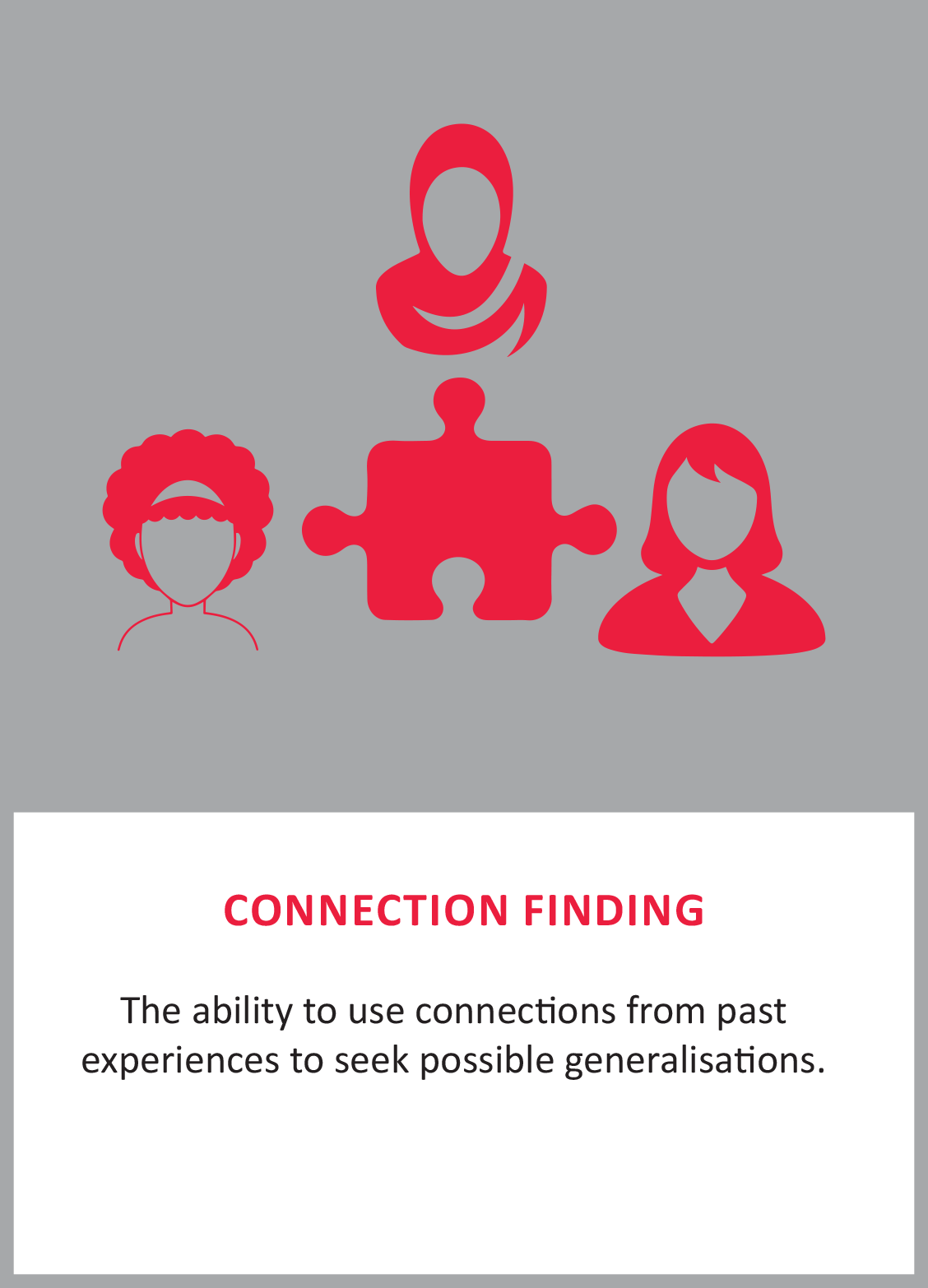
Connection Finding
The ability to use connections from past experiences to seek possible generalisations.
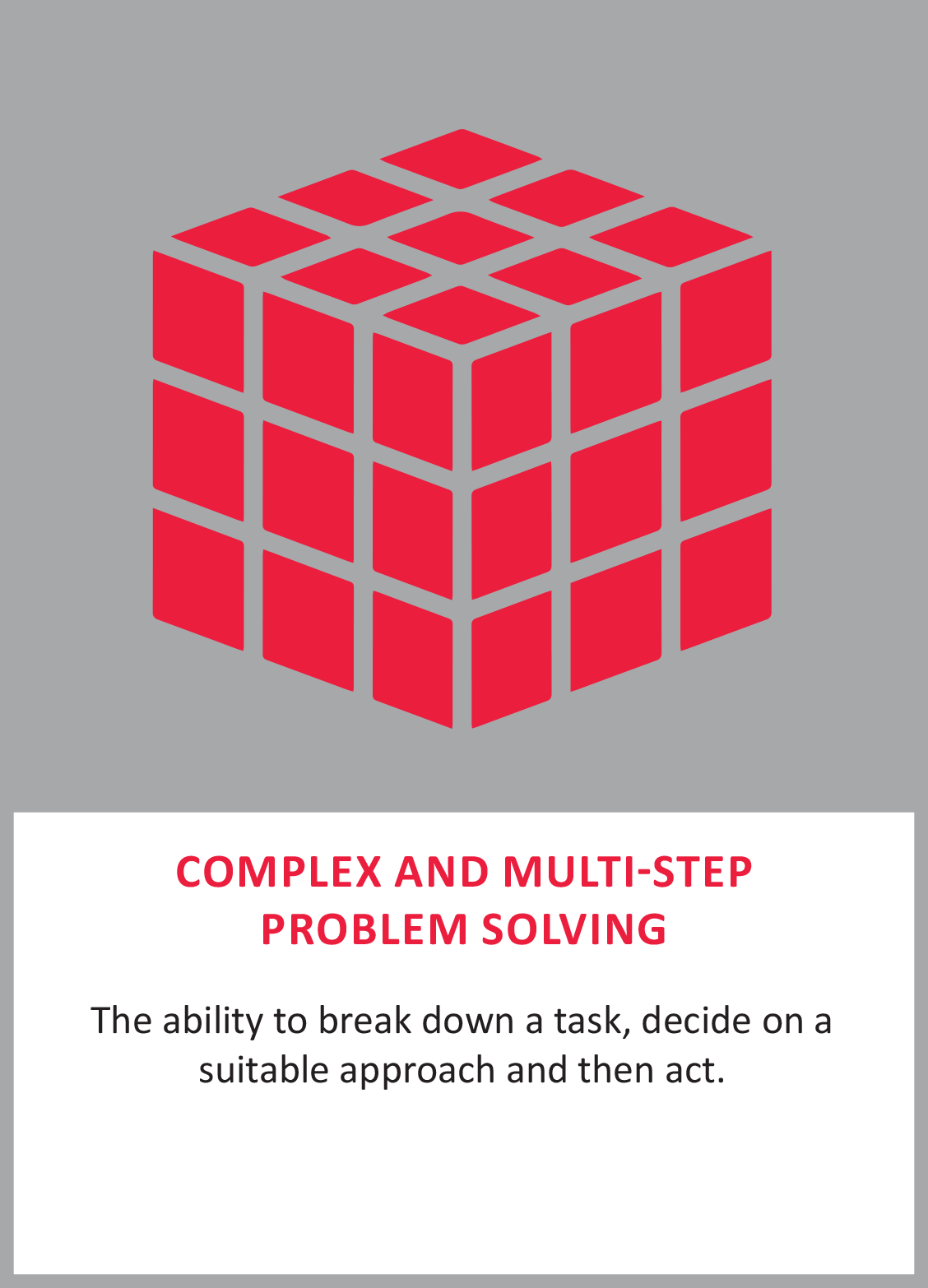
Complex & Multi-step Problem Solving
The ability to break down a task, decide on a suitable approach and then act.
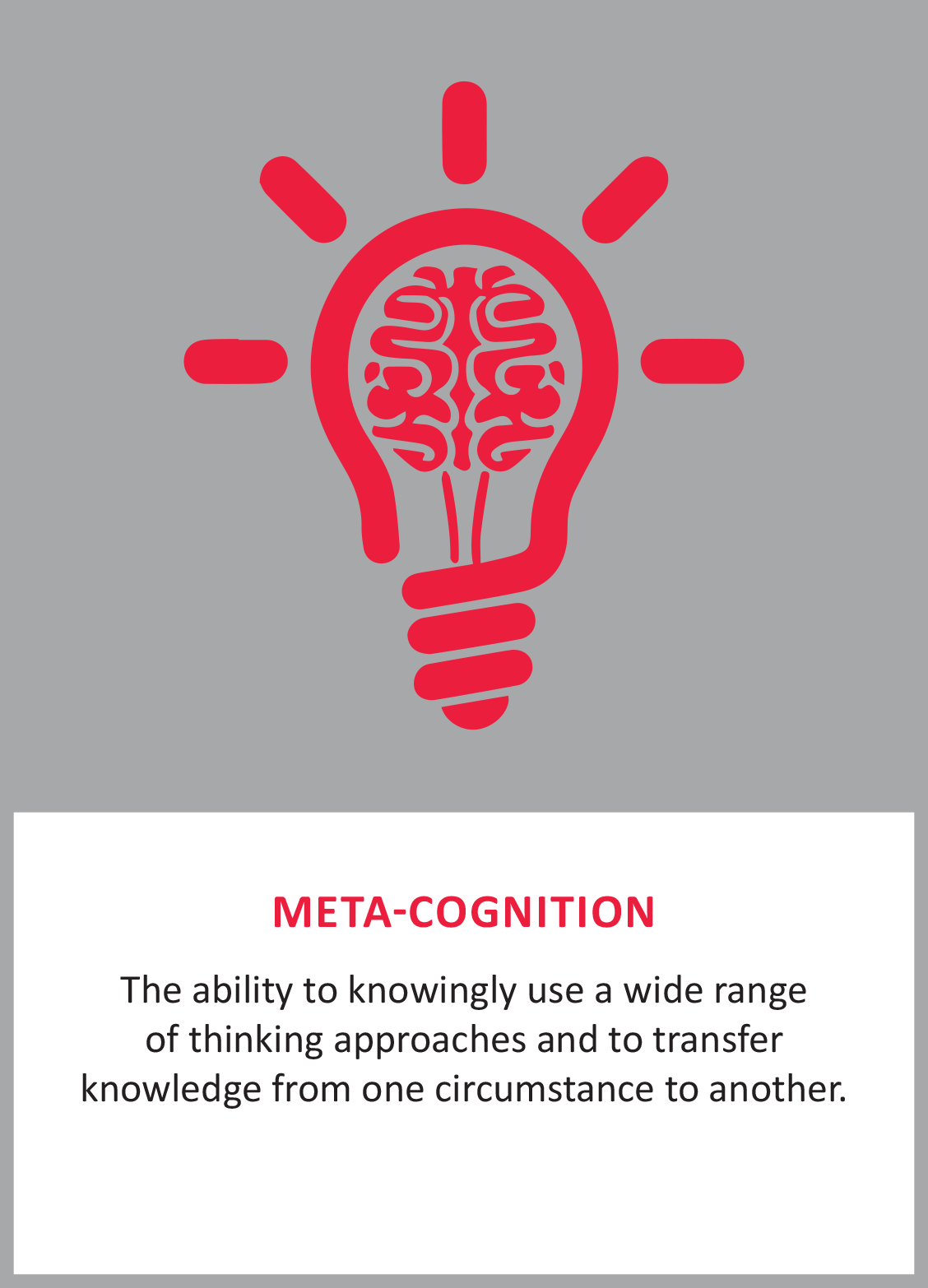
Meta-cognition
The ability to knowingly use a wide range of thinking approaches and to transfer knowledge from one circumstance to another.
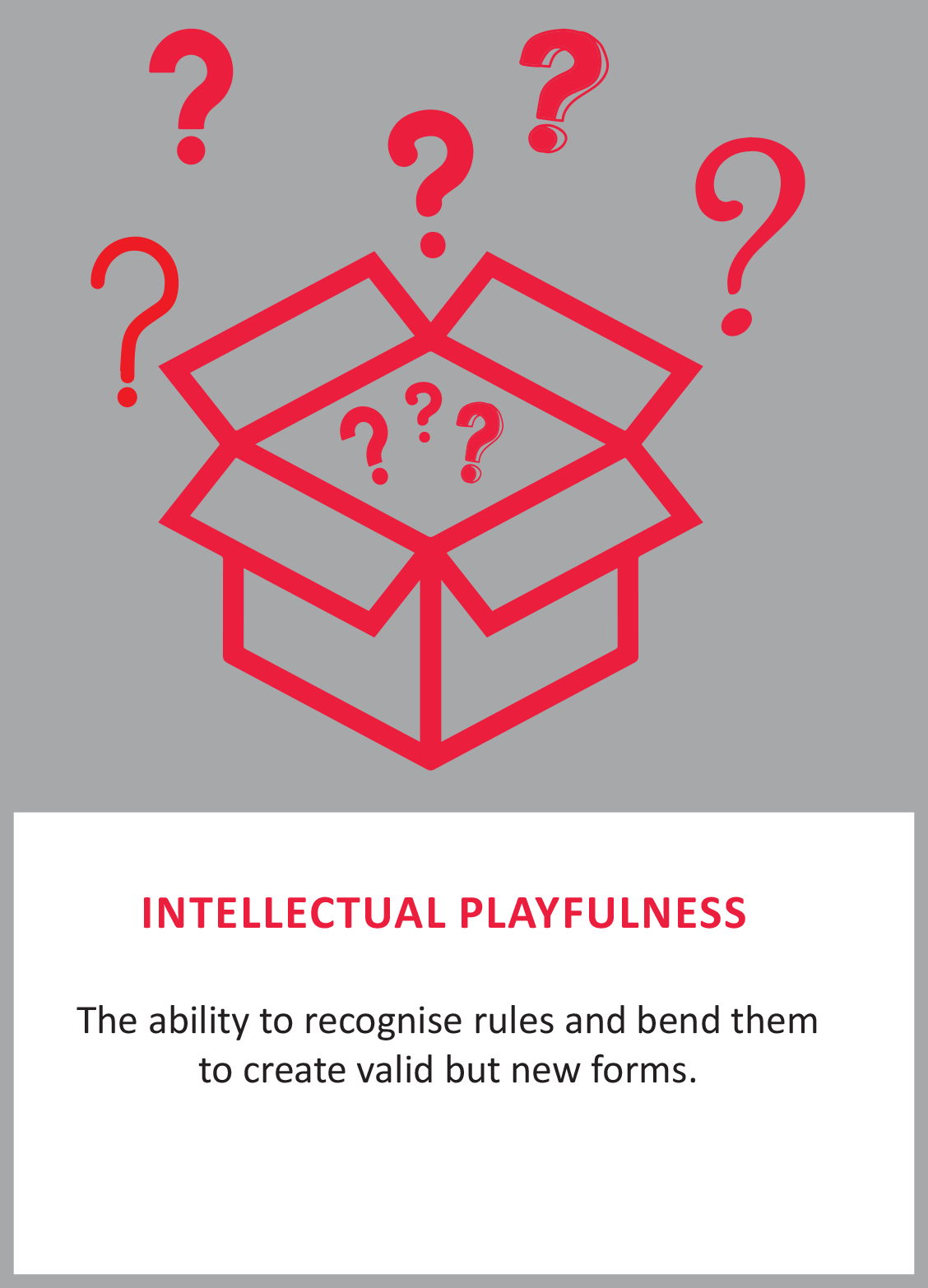
Intellectual Playfulness
The ability to recognise rules and bend them to create valid but new forms.

Seeing Alternative Perspectives
The ability to take on the views of others and deal with complexity and ambiguity.
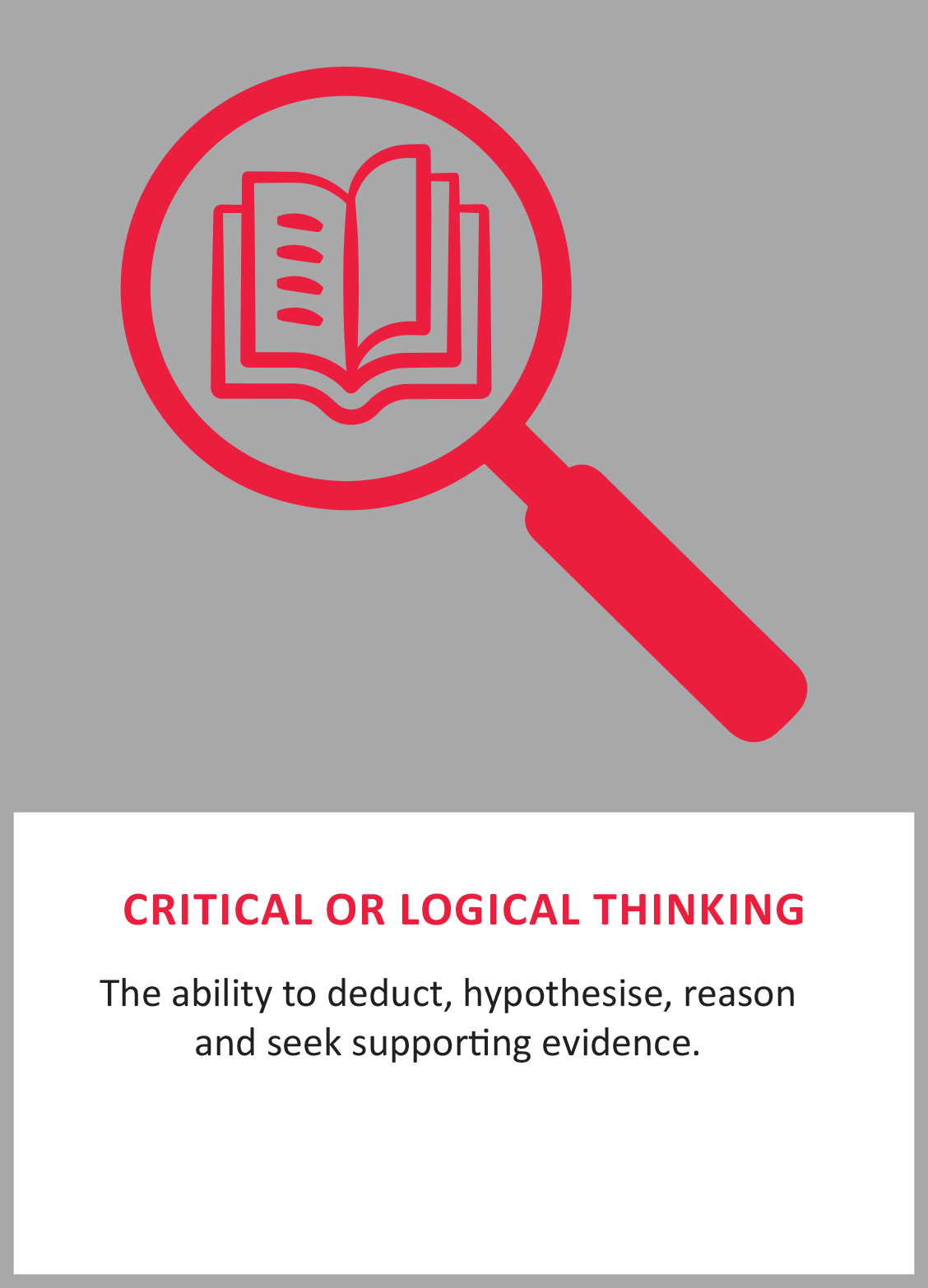
Critical / Logical Thinking
The ability to deduct, hypothesise, reason and seek supporting evidence.
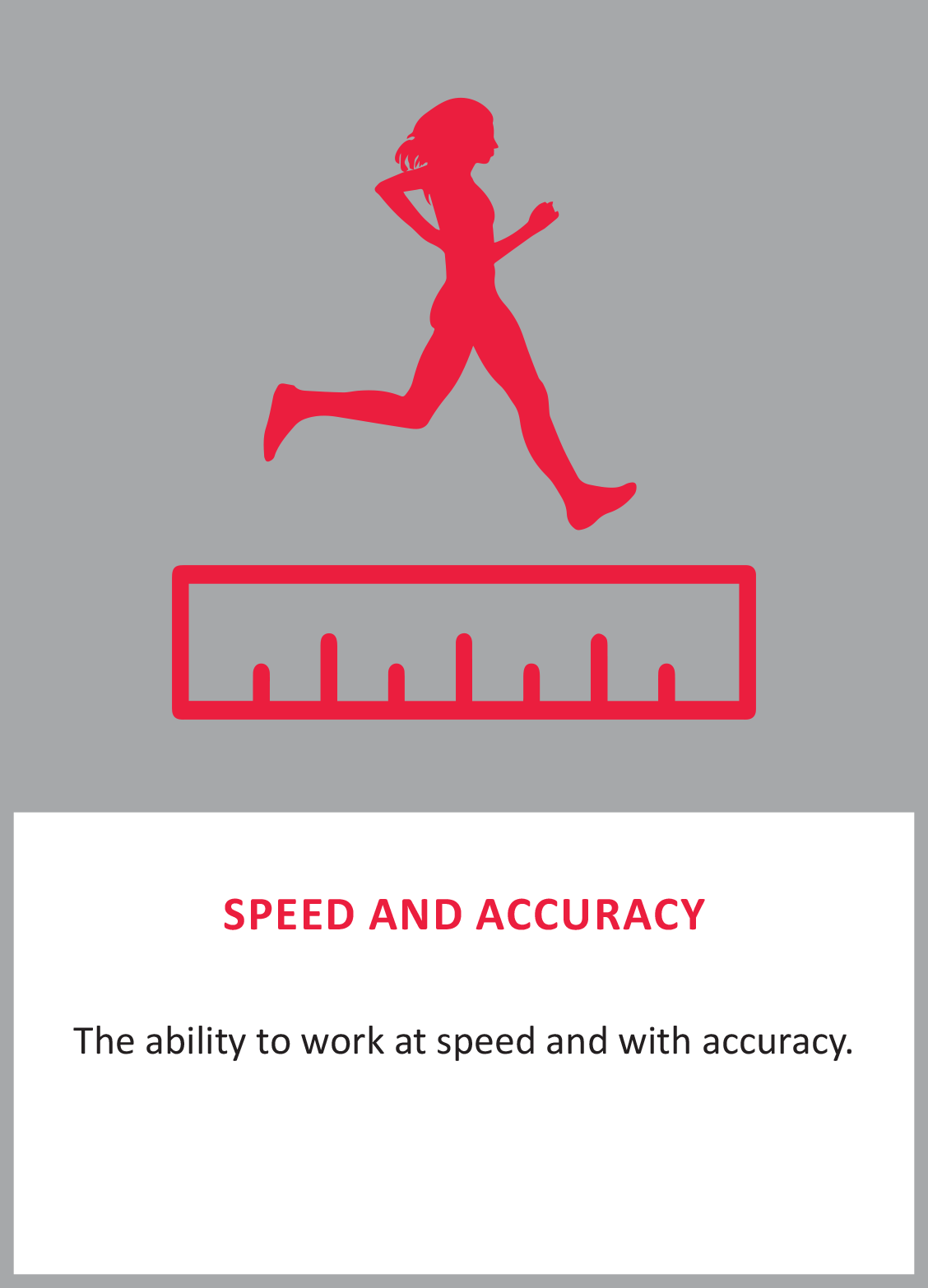
Speed & Accuracy
The ability to work at speed with accuracy.
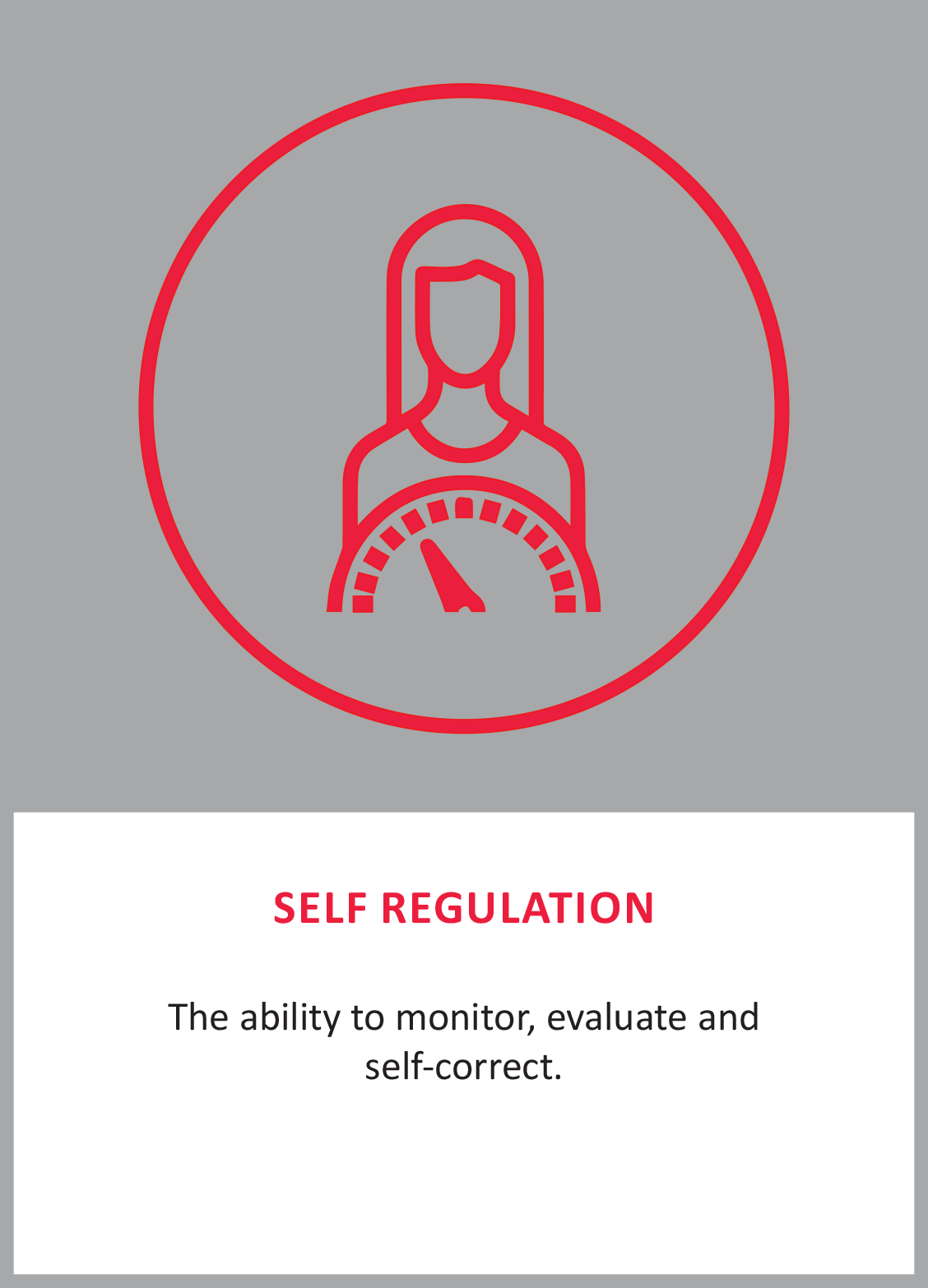
Self-regulation
The ability to monitor, evaluate and self-correct.
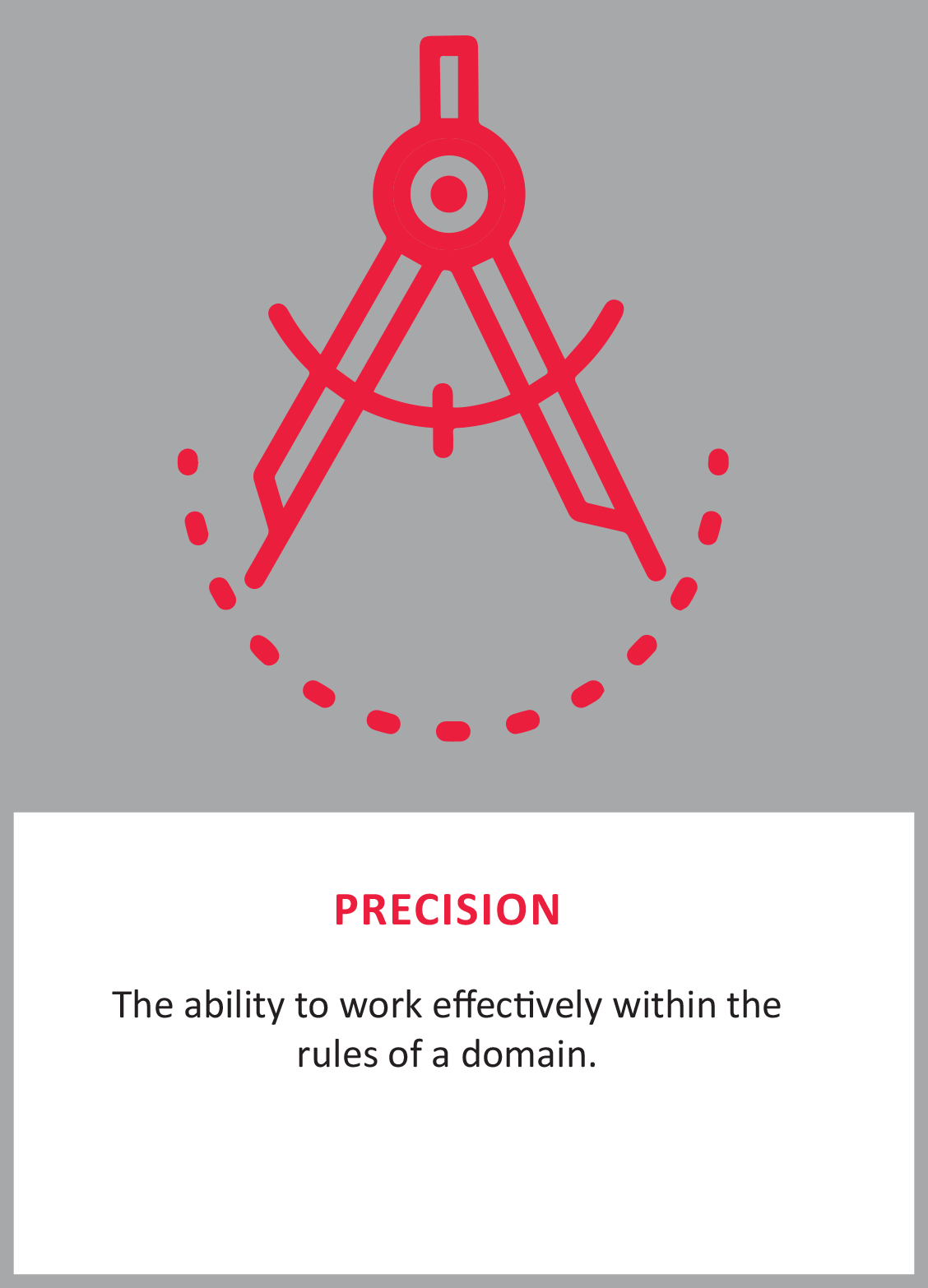
Precision
The ability to work effectively within the rules of a domain.
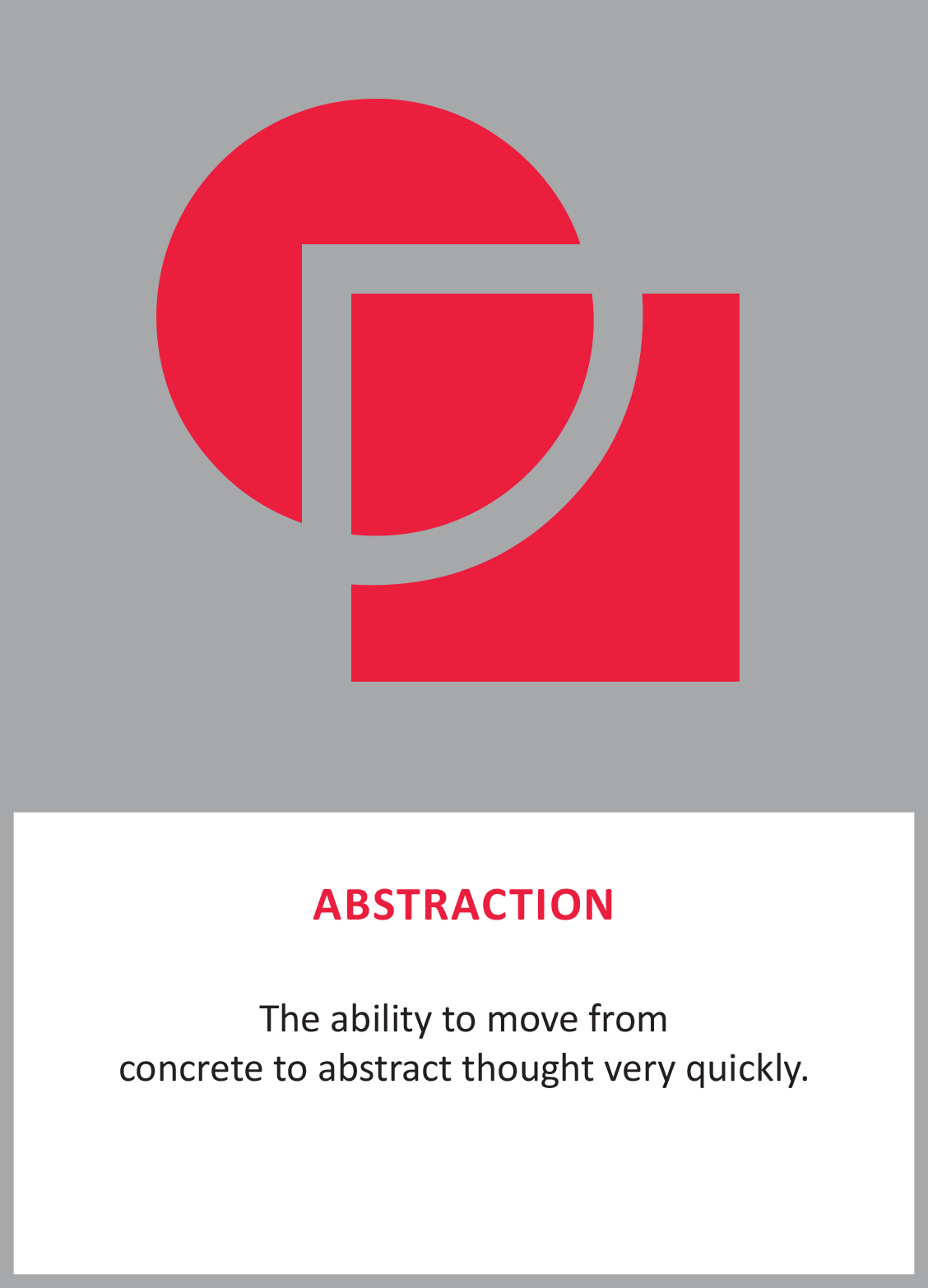
Abstraction
The ability to move from concrete to abstract thought very quickly.
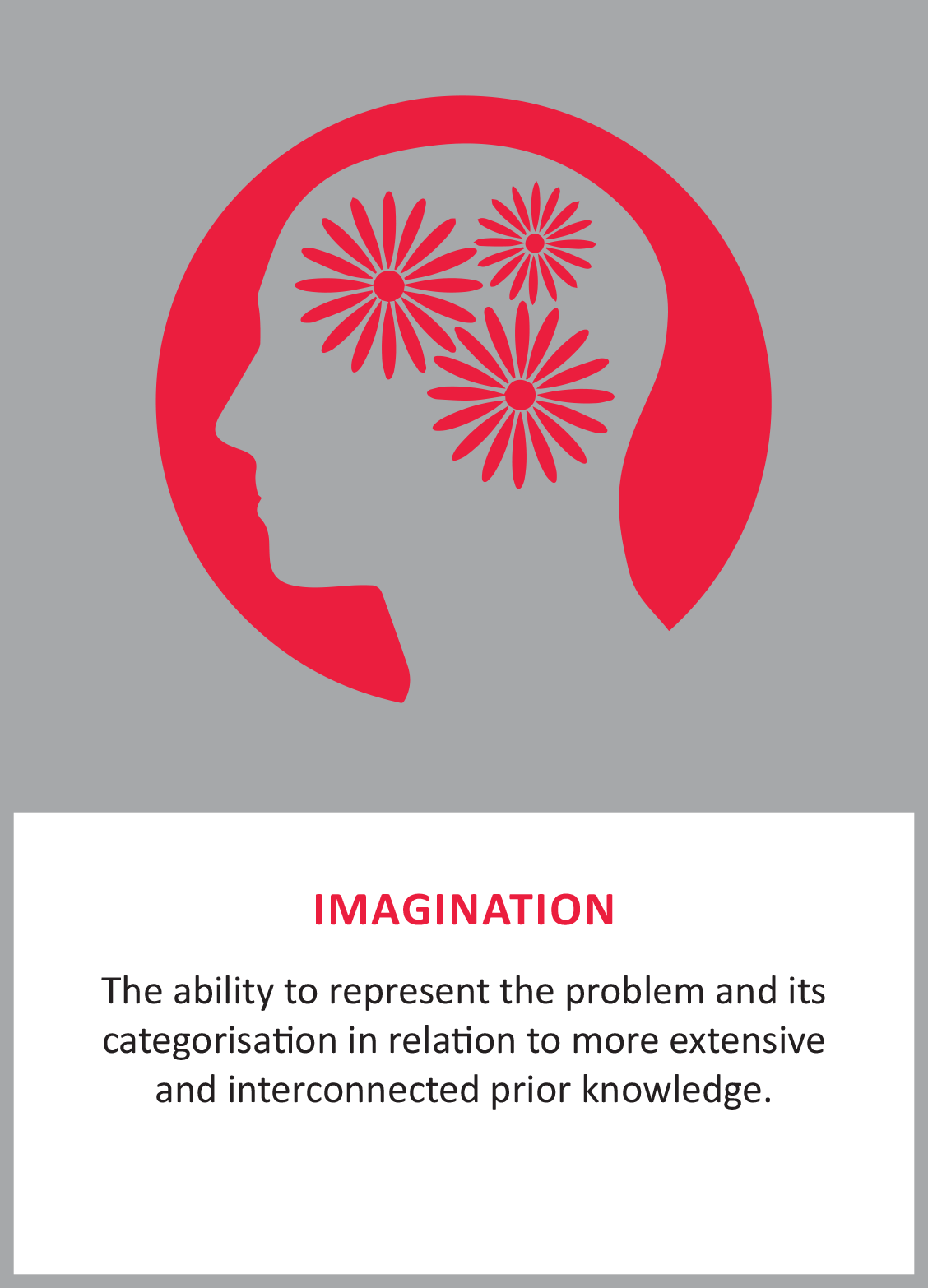
Imagination
The ability to represent the problem and its categorisation in relation to more extensive and interconnected prior knowledge.
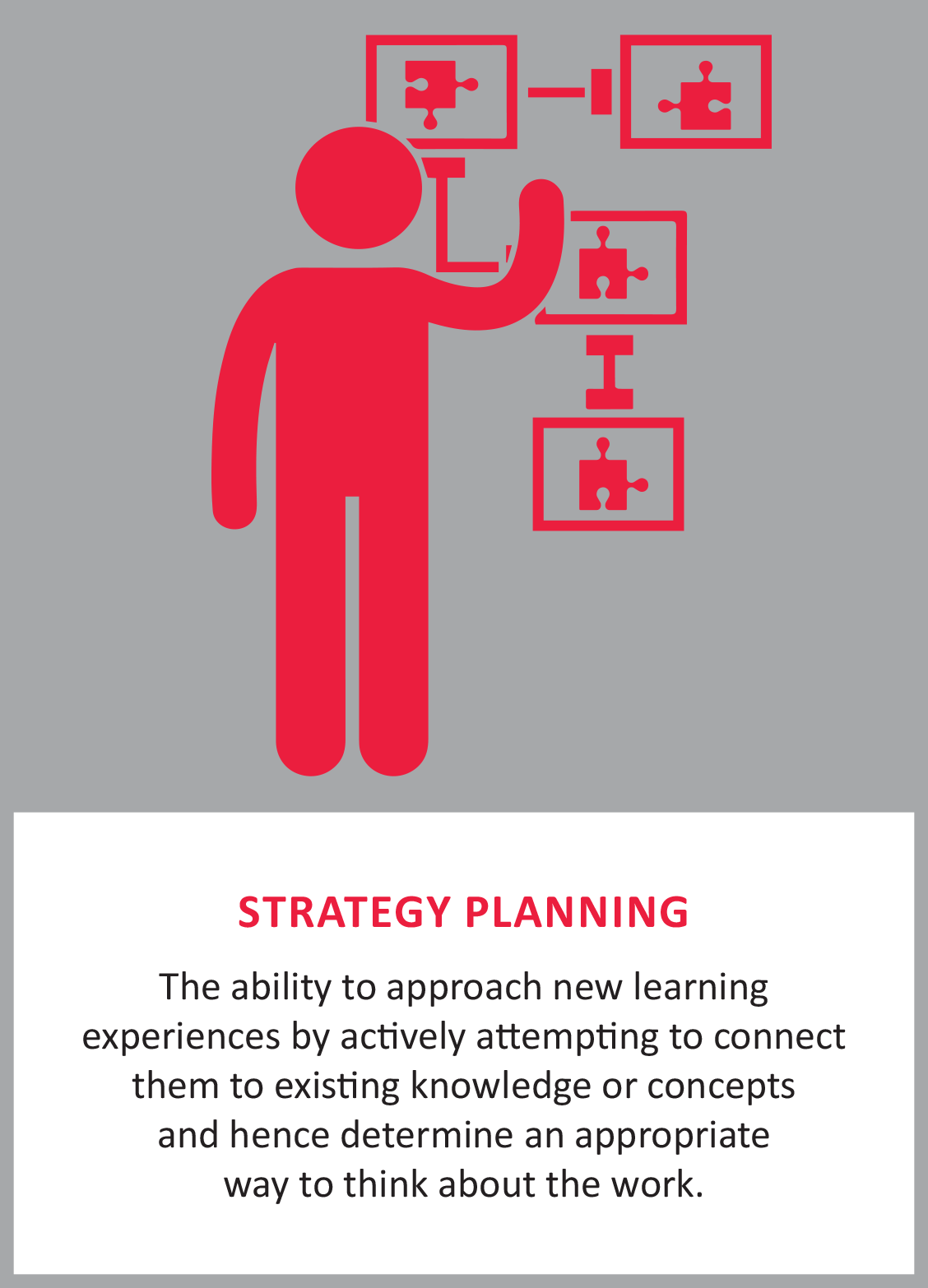
Strategy Planning
The ability to approach new learning experiences by actively attempting to connect them to existing knowledge or concepts and hence determine an appropriate way to think about the work.
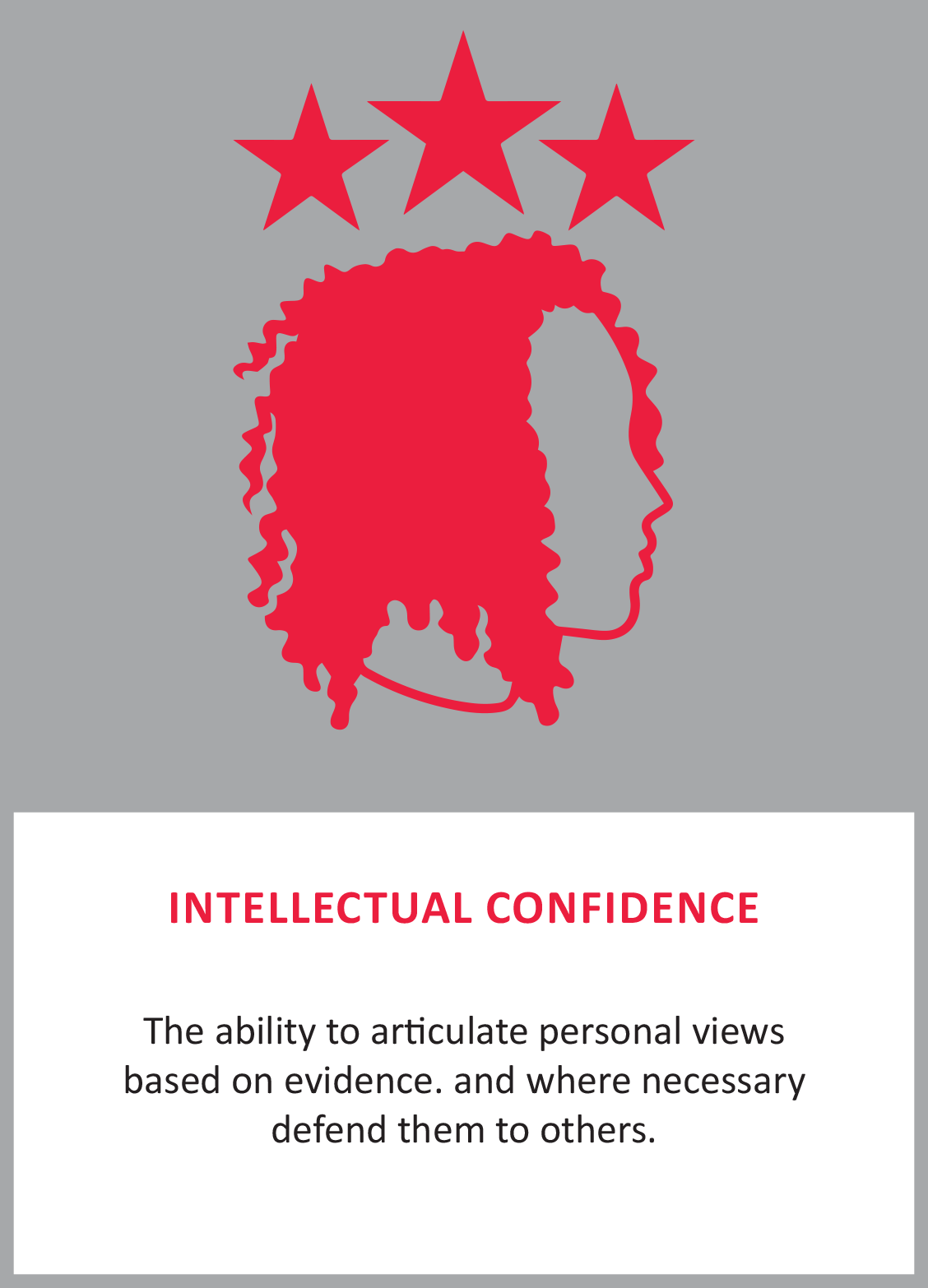
Intellectual Confidence
The ability to articulate personal views based on evidence and where necessary defend them to others.
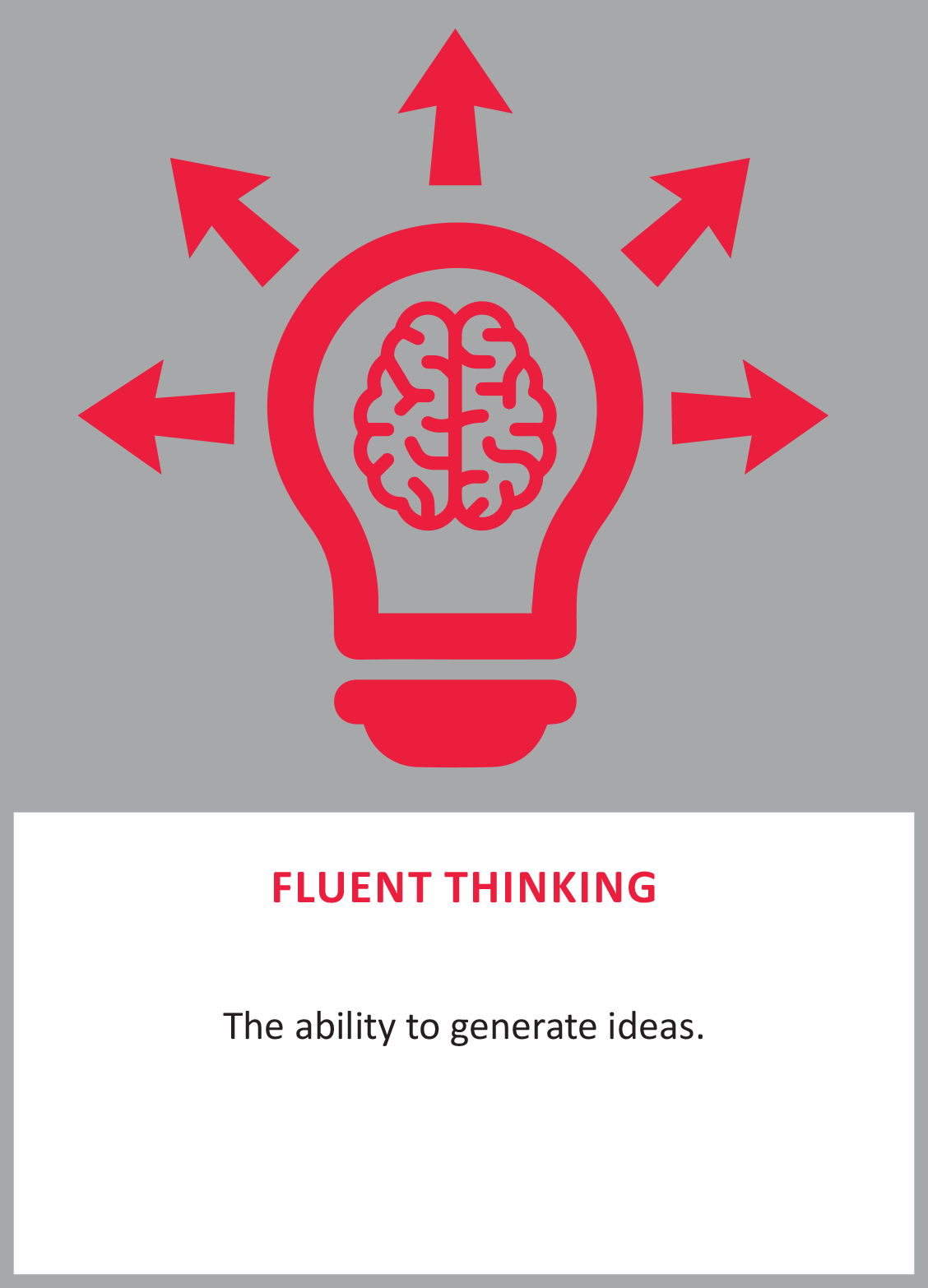
Fluent Thinking
The ability to generate ideas.
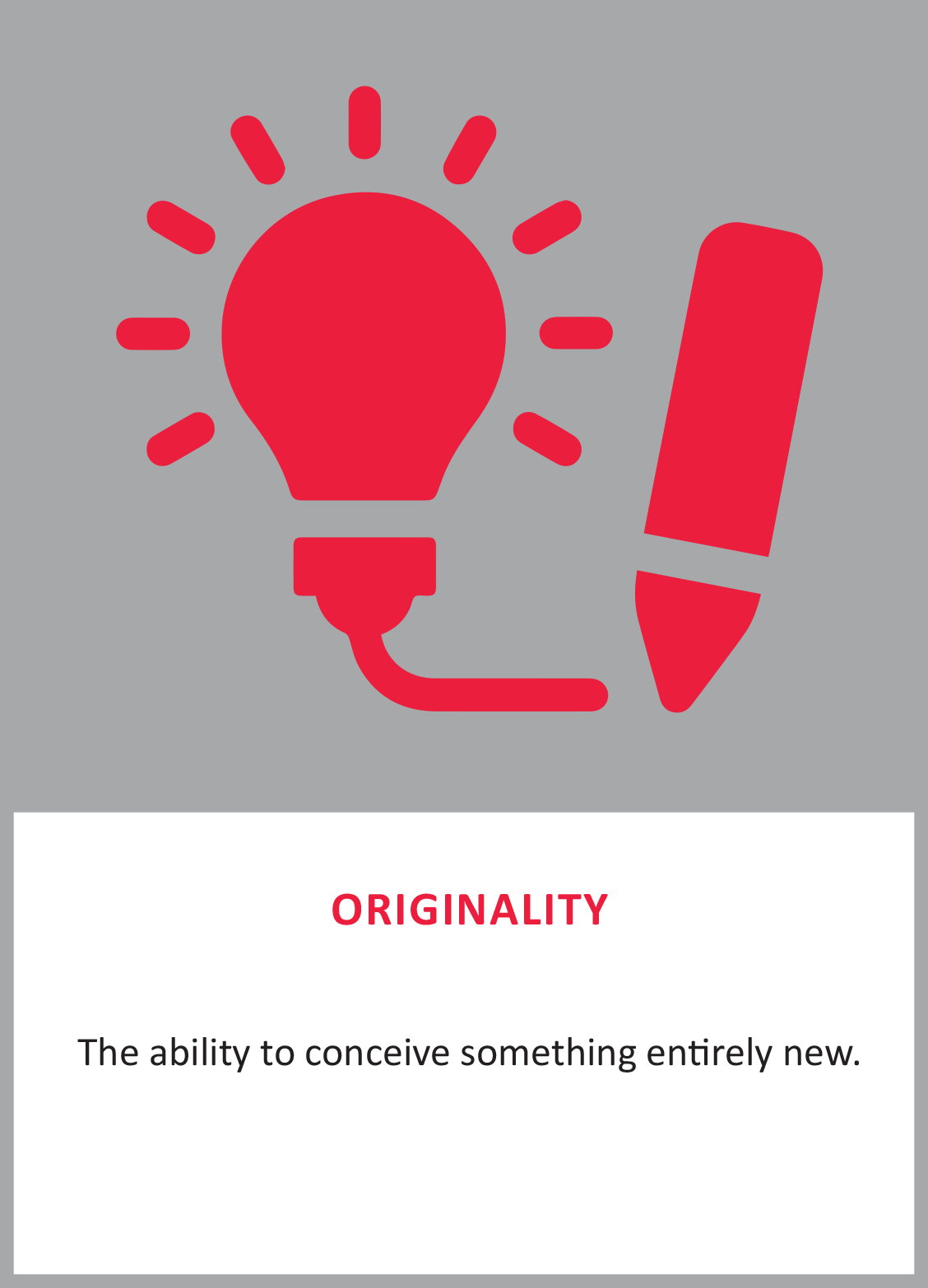
Originality
The ability to conceive something entirely new.
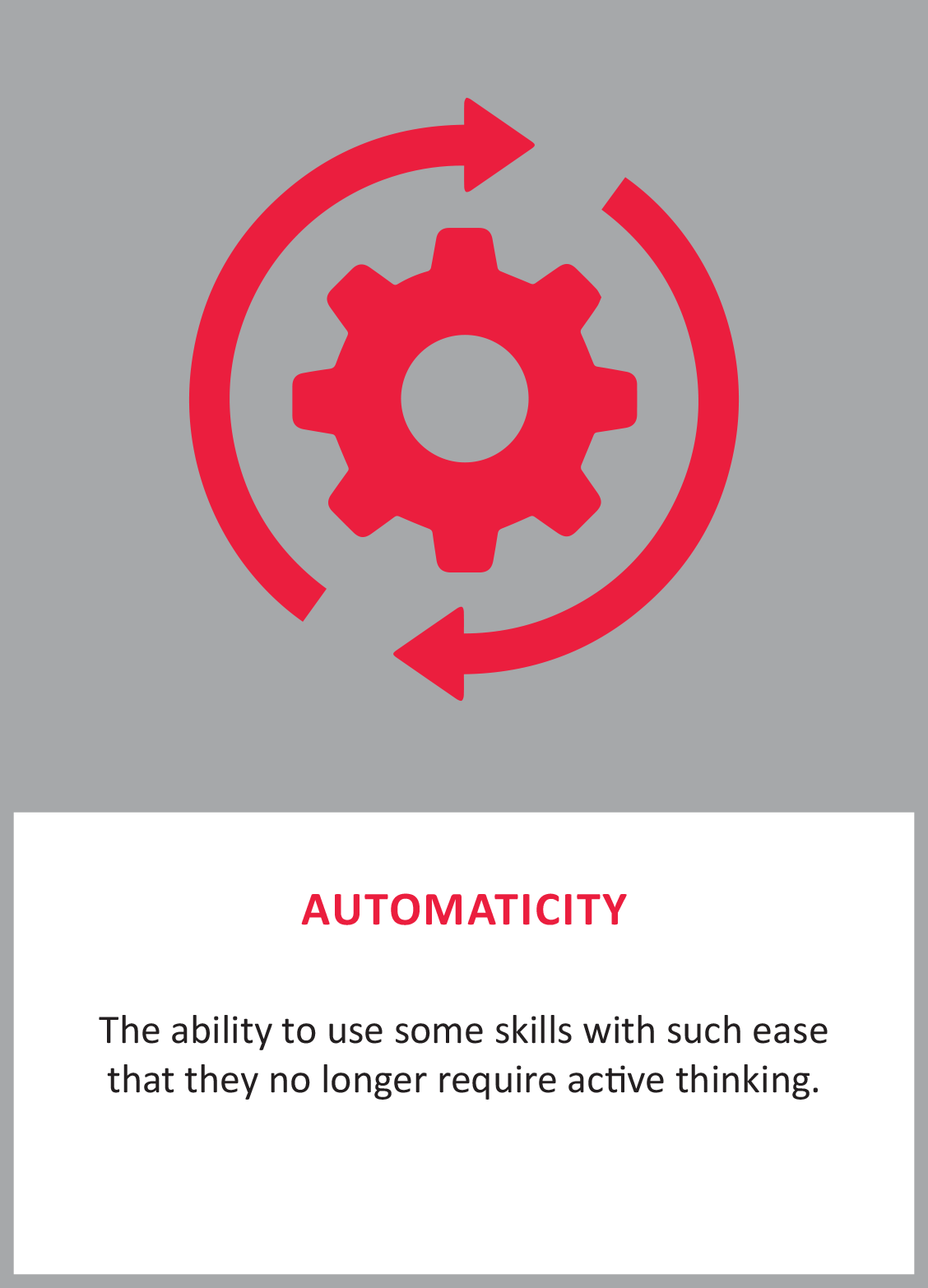
Automaticity
The ability to use some skills with such ease that they no longer require active thinking.
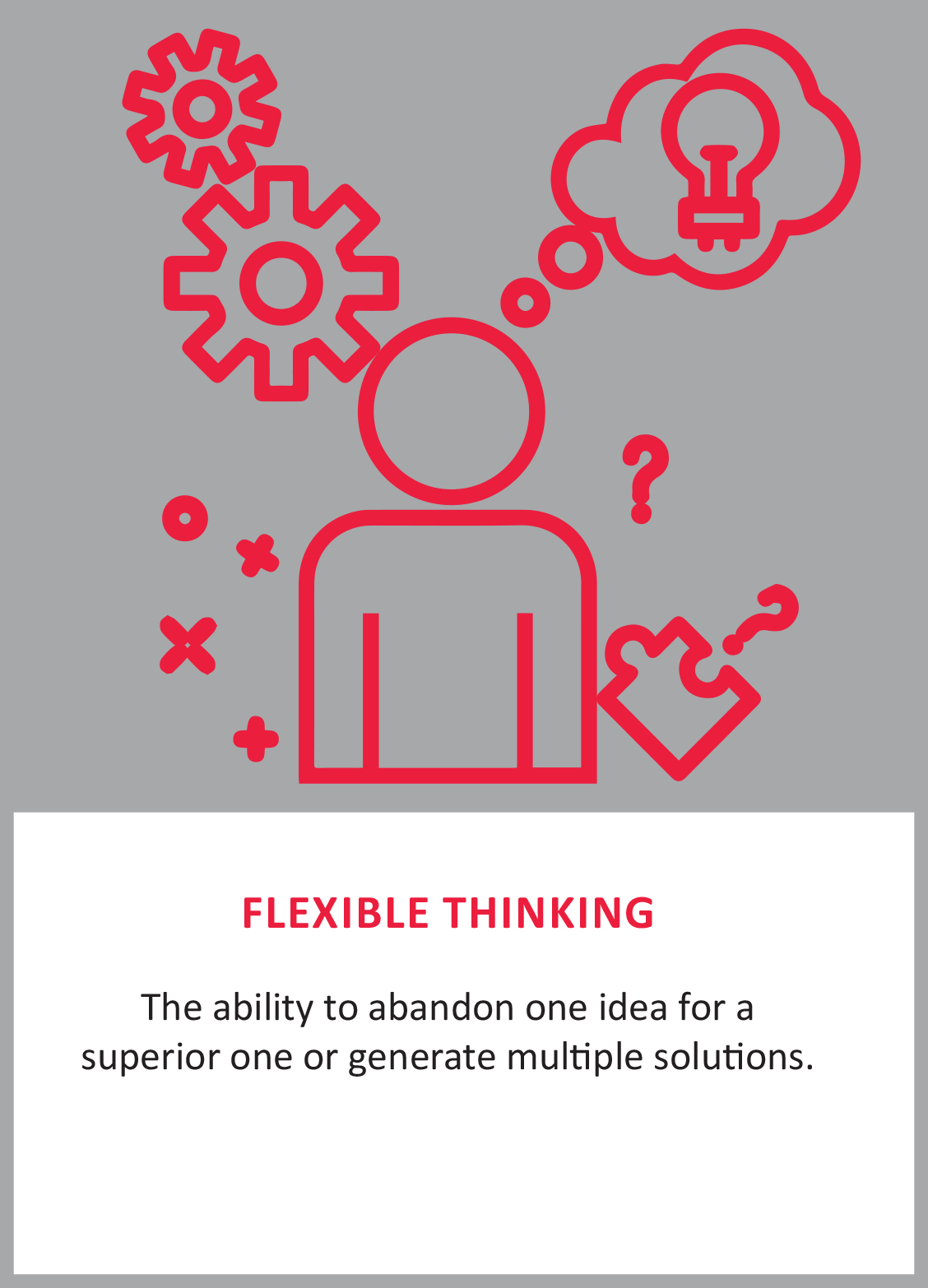
Flexible Thinking
The ability to abandon one idea for a superior one or generate multiple solutions.
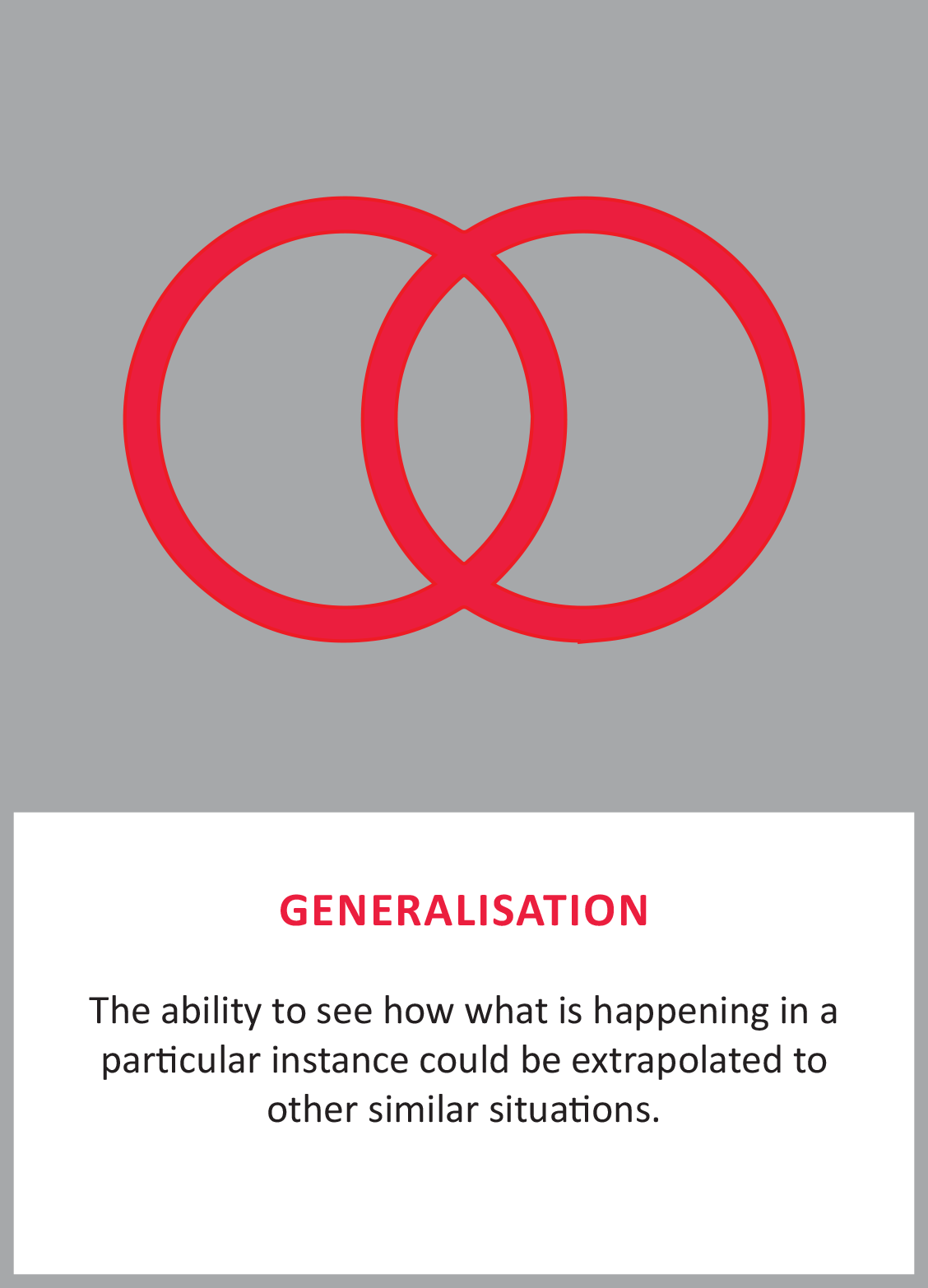
Generalisation
The ability to see how what is happening in a particular instance could be extrapolated to other similar situations.
We use the High Performance Learning philosophy and framework in our school. This means that we believe that all the students can be high performers, and we teach with these expectations in mind.
Using the research-based High Performance Learning approach helps us to systematically build the cognitive competencies that lead a young person to thrive in school and in later life.
We embed the HPL philosophy throughout our school. We never tell our students they cannot achieve; it is just they are not doing it yet but with practice and persevere it will happen. If you want to discover more about High Performance Learning please visit www.highperformancelearning.co.uk
Take a look at this video for an introduction to the philosophy:
Leaders
Mrs M Morgan - Associate Assistant Head Teacher Behaviour & Climate

Michelle Morgan – HPL Leader.
I am proud to be a part of the High Performance Learning Steering Team at Handsworth Wood Girls’ Academy since the start of its implementation. High Performance Learning has complemented our Academy’s values of nurturing an environment where all students can achieve their full potential and develop essential skills needed for their success.
I have been certified as a High Performance Learning (HPL) Leader and am a dedicated advocate for educational excellence. I have a deep commitment to fostering an environment where every student can achieve their full potential and have embedded the HPL philosophy into aspects of school life, specialising in incorporating Advanced Cognitive Performance (ACP) skills, alongside Values, Attitudes, and Attributes (VAAs) within our Character Education and Personal Development and curriculums and enrichment provision. I believe that High Performance Learning is essential in all aspects of Academy life as it nurtures the whole student, equipping them with the skills and attributes needed to excel academically, socially, and emotionally as well as supporting academic achievement. By integrating HPL into these areas, we have created a holistic educational experience where students are empowered to excel academically while growing as well-rounded, high-performing individuals who contribute positively in our school community and beyond.
Achieving the World Class School Award (WCSA) through the High Performance Learning (HPL) framework has significantly driven both student achievement and teaching excellence. It has strengthened our foundation of good practice, allowing us to build on past successes and adopt innovative strategies that enhance the effectiveness of teaching and learning. By promoting high expectations, developing ACPs and VAAs within the classroom and beyond has positioned our Academy to become a globally recognised institution, demonstrating exceptional educational standards and a positive climate for learning. Our Academy thrives on collaboration between students, staff, and parents and carers to create an inclusive environment where everyone has a sense of belonging and feels valued.
As a result of the school’s commitment to being a High-Performance Learning World Class school, we provide ongoing Professional Development (CPD) for staff, equipping them with strategies to integrate High Performance Learning Strategies into the classroom. This has given a strong foundation of good practice that enhances teaching and learning in our Academy. This contributed to our Academy being positioned as a globally recognised institution who provides the foundation of life-long learning.
As a certified HPL Leader, I guide teachers in achieving HPL Teacher and HPL Expert Teacher certifications, equipping them with strategies to effectively implement the High-Performance Learning framework. I enjoy supporting teachers through their HPL certifications as it provides culture of excellence that inspires both teachers and students to perform highly within our Academy.
Mrs H Cudd - Lead Practitioner in English

I have been intrinsic to the HPL journey since our Academy embarked on it in 2020 and am now a Certified HPL Teacher Leader and recognised Global Ambassador. Despite always having high expectations of students, HPL has further demonstrated to me that a student’s performance is not fixed and that although they ‘may not be there yet’, they can get there. I have channelled the HPL philosophy through both my own practice and the CPD opportunities that I have led. HPL across our Academy ensures that students are confidently developing expertise, leading their own learning, and seeking feedback on their performance.
I have done considerable work on how the ACPs can unlock knowledge and lead staff in confidently using the progression grids to aid their teaching practice. I have been able to demonstrate to others how students can be systematically taught the competencies that enable high performance, understand their significance, and can talk about progression within them. Staff and students are now increasingly proficient in the use of the VAAs and ACPs.
Beyond the classroom walls, through my work with the HPL student drive team, I have been able to promote the idea that students at our Academy are demonstrating advanced competencies. These students have created a successful termly bulletin where they explore HPL across the Academy, use the skills in lessons, and track their progress as well as that of their peers. They are on hand during enrichment opportunities to capture excellent practice of our students demonstrating HPL and listen to and report on student voice. This offers further assurance that the language of the HPL framework is visible across our school, lending itself to our belief that every one of our girls can achieve academic success and live a life full of opportunity and fulfilment regardless of their starting point.
HPL Optimisation Team
Mrs S Green – HPL Optimisation Lead KS3
I am proud to be a part of the High Performance Learning (HPL) Optimisation lead team, as I am passionate about the potential that HPL can give our students. The power of the HPL’s ‘not yet’ attitude can allow all students to strive for a better understanding in all subjects. As Optimisation lead for KS3 my role includes ensuring that HPL is being used consistently throughout the academy and that parents and carers are also able to understand the benefits, we are aiming to continue to have a positive school culture with HPL being at the core of everything that we do.
My journey with HPL began when I started the school, and I have found it an invaluable resource for getting students to really think about the way they are doing things, and the thought processes it takes to get from one idea to another. HPL has been transformative in Drama lesson, making it more engaging and connecting the skills to other subjects and life skills. HPL has also allowed me as a teacher to develop my own critical thinking skills allowing me to think more in-depth about the processes within my lessons.
I have taken part in the ‘Expert Teacher’ pathway and have been able to take what I learnt to reflect on how well I know the systems of HPL and different ways to improve my teaching within those principles, I was able to gain a deeper understanding of the methods and terminology which has been key in my evaluation of my own teaching and to get a better understanding of the learning skills that the students are taking part in in every lesson in the academy.
Miss Z Richardson – HPL Optimisation Lead KS4 and KS5

I am proud to be the HPL Optimisation Lead for KS4 and KS5 as this gives me the opportunity to work with curriculum leaders and teachers that teach our GCSE and A – Level cohorts to embed HPL into their specifications and create an ambitious curriculum for all students to thrive. This is the chance to create a culture for students to be school ready, work ready and life ready which allows them to drill deep into the ACP’s and VAA’s with ease and take them with them into their everyday lives.
At HWGA, we want our students to be inquisitive and enquire through the curriculum, HPL gives them the platform to do this which is why I am working with leaders to make sure HPL is underpinning their curriculum choices. Moving forward, I will be looking at all curriculum areas and working with subject leaders to create an ambitious culture so all students have the opportunity to show intellectual confidence and have fluency with their thinking in the classroom.
Experts
Miss M Jaouen - Director of Digital Pedagogy

Having been part of the school since the beginning of the HPL (High Performance Learning) accreditation process, I have gained a valuable set of skills and competencies that I now embed in my lesson planning to support students effectively. Initially, my mindset towards HPL did not shift immediately. As a non-native English speaker, I found the language challenging, which slowed my initial progress in implementing HPL practices. However, participating in the accreditation process and engaging with the supporting materials significantly helped me integrate HPL principles into my planning and teaching.
This journey provided me with the opportunity to connect with fellow HPL colleagues worldwide, share best practices, and reflect on my own methods. I am now much more confident with the language and have fully embedded the HPL philosophy into my Modern Foreign Languages lessons and assessments. I continuously seek ways to further incorporate Advanced Cognitive Performance Characteristics (ACPs) and Values, Attitudes, and Attributes (VAAs) into language teaching.
Now more confident with HPL, I eagerly share strategies on the HPL online portal, actively participate in school CPD sessions, and demonstrate what HPL looks like in MFL. This collaborative approach has enriched my teaching practice and significantly enhanced the learning experience for my students.
Teachers
Mr M Judd - Head of Music

I’m an enthusiastic and dedicated HPL teacher with a passion for fostering a high-performance learning environment. In my lessons I aim to empower our students to reach their full potential through innovative teaching methods and a student-centred approach. My goal is to cultivate a classroom culture where precision, originality and resilience are not just encouraged, but becomes the norm.
Incorporating ACPs and VAAs into music lessons transforms the learning experience, making it more engaging and effective for our students. By integrating activities that promote critical thinking, problem-solving, and creative exploration, music educators can deepen students’ understanding of concepts and enhance their performance and composition skills which further enhances their ability to learn throughout the academy. For instance, encouraging students to analyse and interpret different musical pieces fosters critical listening and interpretative skills. Problem-solving exercises, such as figuring out the best finger placements for complex passages, improve dexterity and cognitive flexibility. Creative tasks like composing original pieces or improvising solos stimulate imagination and innovation. Through the thoughtful application of ACPs, music lessons can cultivate not only technical proficiency but also a lifelong appreciation for music. Fostering attributes like teamwork and empathy through group performances and collaborative projects enhances students’ social skills and emotional intelligence.
My journey as an HPL teacher has been a transformative and fulfilling experience. From the moment I stepped into the classroom, I was determined to create an environment where every student could thrive and reach their highest potential. Over the years, I have embraced the principles of HPL, fostering a growth mindset, resilience, and a passion for lifelong learning in my students. By integrating innovative teaching strategies and continuously seeking professional development, I have seen remarkable progress in my students’ academic achievements and personal growth. The journey has not been without its challenges, but each obstacle has only strengthened my commitment to high-performance learning. Witnessing my students’ successes and knowing that I have played a part in their development is the most rewarding aspect of my career. As I continue on this path, I am more motivated than ever to inspire and empower the next generation of learners.
Ms B Hussain - Teacher of Psychology
My journey with High Performance Learning (HPL) began with the realisation that traditional learning methods were not enough to unlock my full potential. HPL offered a unique approach to education, one that prioritises both cognitive and emotional development. From the outset, I was drawn to the core philosophy of HPL: that everyone has the capacity for excellence, provided they are given the right tools, strategies, and mindset to unlock their full potential.
The journey started with understanding the HPL framework, which emphasised the development of key cognitive and emotional skills, including critical thinking, problem-solving, creativity, and resilience. The focus on the holistic development of learners rather than just academic achievement resonated deeply with me. This was a significant shift from traditional education systems, which often overlook the importance of emotional intelligence and cognitive flexibility.
One of the pivotal moments in my HPL journey was engaging with the concept of metacognition—learning how to think about thinking. Through various HPL activities and strategies, I began to understand the importance of self-awareness in learning. I learned how to assess my own thinking processes, identify areas for improvement, and adopt strategies for more effective problem-solving. This was particularly empowering, as I realised that learning is not a passive process but an active one that requires reflection and adaptation.
As I delved deeper into HPL, I encountered various tools and techniques designed to foster a growth mindset. These tools encouraged me to embrace challenges and see setbacks as opportunities for learning rather than failures. One of the most transformative aspects of my journey was recognising the power of resilience. HPL taught me that setbacks are part of the learning process and that perseverance, coupled with the right mindset, leads to growth.
The HPL approach also introduced me to the concept of high-performance thinking. I learned how to approach tasks with a mindset geared toward excellence, whether in academic pursuits, creative endeavours, or personal development. This involved cultivating habits of focus, discipline, and self-regulation—skills that not only improved my academic results but also had a profound impact on my personal and professional life.
Throughout my HPL journey, I was supported by a community of like-minded learners who were equally committed to achieving their best. The network of HPL practitioners, coaches, and peers was invaluable, providing me with ongoing support, feedback, and inspiration. The collaborative environment fostered by HPL helped me to see learning as a shared experience, and I learned the importance of surrounding myself with individuals who inspire and challenge me.
As I reflect on my HPL journey, I realise how far I have come. HPL has not only transformed the way I approach learning but also shaped how I think about challenges, growth, and success. The principles of HPL have equipped me with the tools and mindset necessary to continue striving for excellence in all aspects of my life and provided with the drive to complete my “Expert Teacher” Portfolio.
Mrs K Bahia - Teacher of ICT and Computing

My journey with High Performance Learning (HPL) has been truly transformative, reshaping the way I approach both academics and personal success. Rooted in educational research, HPL provides a framework that fosters high performers by helping them master essential skills like resilience, problem-solving, and critical thinking. What really stood out to me was the belief that everyone has the potential for excellence, as long as they’re provided with the right tools and mindset. HPL goes beyond traditional intelligence, prioritising the growth of a well-rounded set of intellectual, emotional, and social abilities.
As I delved deeper into the HPL framework, my perspective on learning transformed. The methodology shifted me from passive learning to active engagement, where I took full ownership of my educational path. I embraced key principles of HPL, like developing advanced cognitive skills, fostering a positive attitude toward failure, and setting clear goals for ongoing growth. The idea that learning thrives on both challenge and support really resonated with me. HPL emphasises that high performers aren’t born—they’re made through consistent effort, constructive feedback, and self-reflection.
Whenever I faced setbacks, I no longer viewed them as failures but as opportunities for growth. This mindset shift encouraged me to tackle problems head-on, rather than passively accepting challenges. HPL’s focus on these habits has been transformative, helping me develop the persistence to keep moving forward, even when the path wasn’t easy.
Furthermore, the framework’s emphasis on developing executive functions—such as working memory, cognitive flexibility, and self-regulation—has had a profound impact on my ability to learn and apply new concepts. I’ve found that honing these functions has not only made it easier to absorb complex material but also allowed me to adapt my thinking to different contexts. This flexibility has made me a more efficient learner and a more effective problem-solver, as I can now approach challenges with a broader range of strategies.
Being part of a community that values diverse perspectives has expanded my understanding and deepened my thinking. Engaging with peers and exchanging ideas has enriched my learning experience in ways that would not have been possible in isolation. I’ve learned to appreciate the value of collaboration, recognising that high performance isn’t just about individual achievement but also about working together to push each other further. This collective approach, along with HPL’s focus on a growth mindset, has shown me how powerful it is to continuously strive for improvement—both on my own and with the support of others.
Rather than simply moving from one task to the next, I now take the time to evaluate my progress, pinpoint what’s working, and refine what isn’t. This process of constant reflection and adjustment has empowered me to optimise my learning experience. It has made me more efficient, as I’m no longer wasting time on methods that aren’t serving me well. Instead, I’m able to target the strategies that help me retain information and solve problems more effectively, ensuring that I’m always moving forward in a purposeful and productive way.
Miss S Solanki

My journey with High Performance Learning (HPL) has been a transformative experience, enabling me to redefine both my academic and personal approach to success. HPL, grounded in the principles of educational research, provides a framework designed to cultivate high-performing individuals who thrive through mastery of skills such as resilience, problem-solving, and critical thinking.
I first encountered HPL through its innovative approach to education, which emphasises not just knowledge acquisition but the development of skills, habits, and mindsets essential for high achievement. One of the core ideas that resonated with me is the belief that everyone has the potential for high performance, provided they are equipped with the right learning tools and mindset. HPL does not merely focus on traditional intelligence but on the cultivation of a comprehensive set of intellectual, emotional, and social competencies.
As I immersed myself in the HPL framework, I began to see my learning experience in a new light. The methodology encourages a shift from passive learning to active engagement, where I took ownership of my educational journey. I applied the key principles of HPL, which include fostering high-level cognitive skills, promoting a positive attitude towards failure, and setting specific goals for continual progress. The idea that learning should be a blend of both challenge and support was particularly inspiring. HPL champions the notion that high performers are not born but made—through sustained effort, appropriate feedback, and self-reflection.
Through HPL’s emphasis on the habits of the Mind, I learned how crucial it is to develop characteristics like resilience, adaptability, and perseverance. These habits empowered me to overcome obstacles in both academic and personal spheres, pushing me to be a problem-solver rather than a passive recipient of knowledge. Additionally, the framework’s focus on the development of executive functions, such as working memory and cognitive flexibility, has enhanced my ability to learn complex concepts and apply them in practical situations.
The learning community that HPL fosters is also something that I value deeply. The collaborative environment encouraged by HPL promotes the sharing of diverse perspectives, which has been invaluable in refining my ideas and broadening my intellectual horizons. I have come to appreciate the importance of a growth mindset and the role of collaboration in cultivating high performance.
Moreover, HPL’s emphasis on the development of metacognitive skills has transformed my approach to learning. I now regularly assess my learning processes, identify my strengths and weaknesses, and refine my strategies for improvement. This level of self-awareness has given me the tools to continuously adjust and optimise my learning, making me more efficient and effective in my endeavours.
Looking ahead, I continue to integrate the principles of High Performance Learning into both my professional and personal life. Whether it’s through collaboration, or continuous self-improvement, HPL has been a guiding force in helping me unlock my potential. This journey is ongoing as I now aim to now achieve HPL Expert Teacher.

